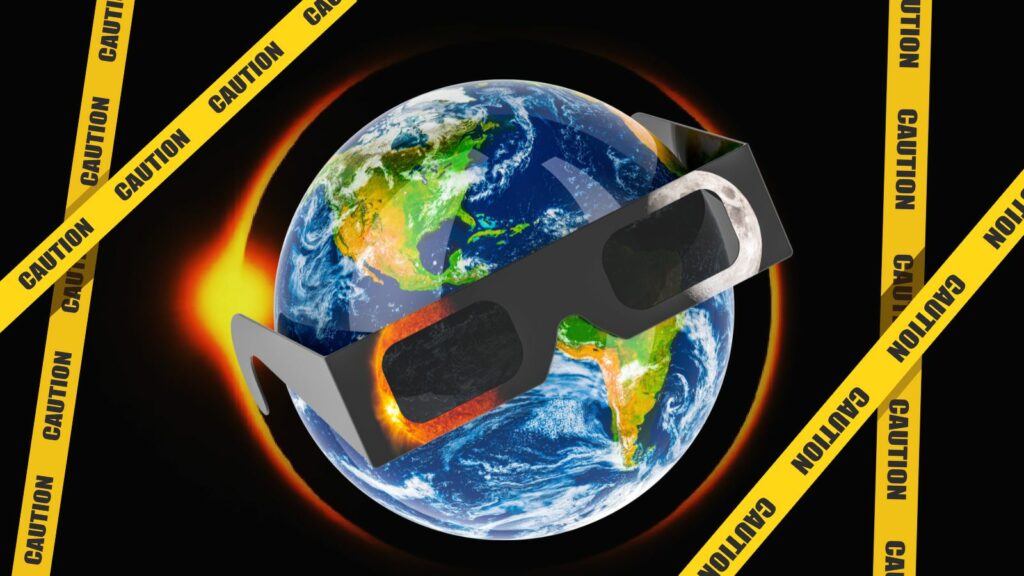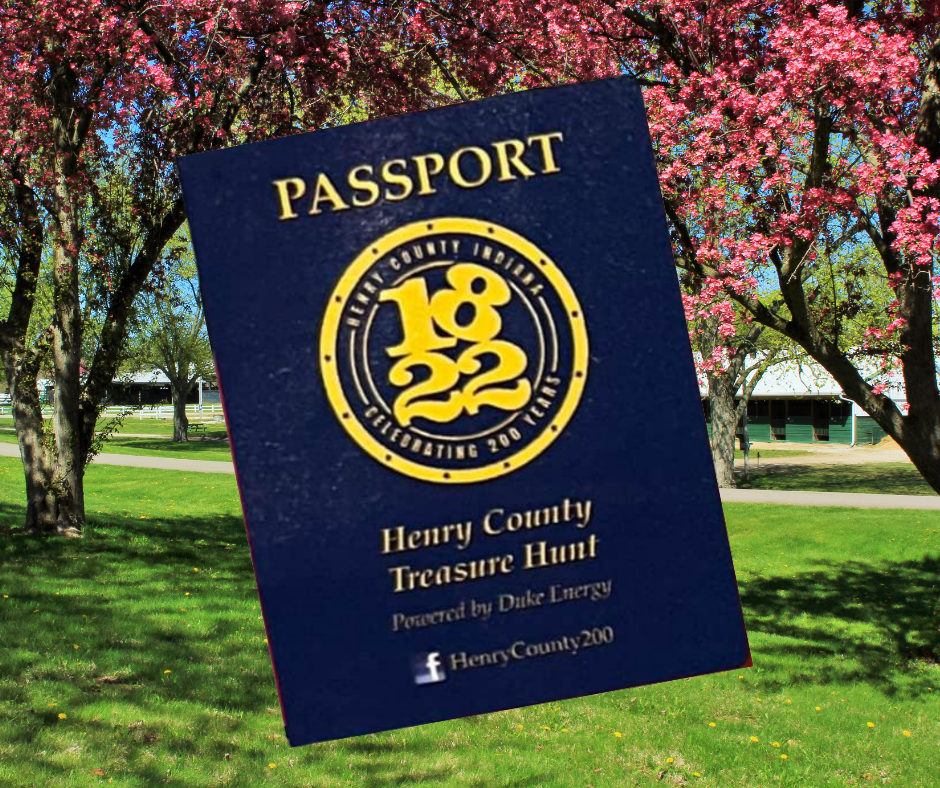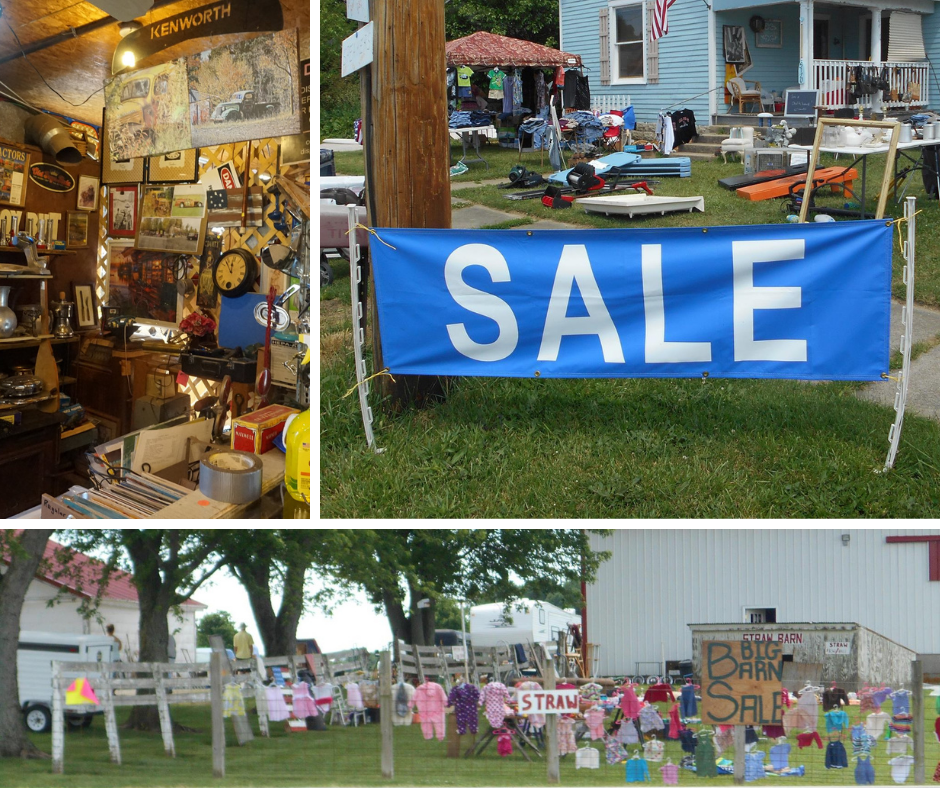Eclipses are a fascinating astronomical phenomenon and can be beautiful sights to behold, but it’s important to take precautions to protect your eyes from the sun’s harmful ultraviolet (UV) rays. As you get ready to watch the total solar eclipse in Henry County on April 8, here are some answers to questions you may have.
Q: Do I really need special glasses to view the eclipse?
A: Absolutely! The sun’s intense UV radiation during a solar eclipse can gravely harm the light-sensitive retina at the back of the eye, leading to solar retinopathy, which may result in vision loss and eye issues. Eclipse safety glasses provide optimal protection by blocking UV rays while permitting safe levels of visible light to reach your eyes.
Note: It is never safe to look directly at the sun without appropriate filters, regardless of whether it’s an eclipse.
Q: Where can I get eclipse glasses?
A: Using eclipse safety glasses certified by reputable organizations is crucial to ensure eye safety during a solar eclipse. When selecting the glasses, ensure they carry the American Astronomical Society (AAS) AAS or the International Organization for Standardization (ISO) certification to guarantee their safety and effectiveness.
Places where you can locally get eclipse glasses for a nominal cost:
- New Castle-Henry County Public Library
- Knightstown Public Library
- New Castle Main Street
- New Castle Walmart Vision Center
- Summit Lake State Park
- Manpower, New Castle
- Kroger, New Castle
- State Farm, New Castle (Main St.)
- Lewis Insurance, New Castle
- Professional Design, New Castle
- Twin Lions, New Castle
- Ky’s Lunch Box, New Castle
- Dr. Shaneyfelt’s Optometry Office, Knightstown
- Dead Headers Greenhouse, Spiceland
- Cafe Royal, New Castle
Q: How do I know if I have proper eclipse safety glasses?
A: To be deemed safe, glasses should have clear labeling that specifies ISO 12312-2, indicating compliance with the safety requirements set by the International Organization for Standardization. For safety reasons, glasses should be discarded in case of scratches or damage.
Q: I can’t see anything through my eclipse safety glasses. Are they safe to use?
A: Yes. You shouldn’t be able to see anything through your eclipse glasses. They are designed to block all sunlight except the light from the partial eclipse and safely view the eclipse without damaging your eyes.
To test the safety of your glasses:
- Turn on a household lamp and look directly at it. You should see blackness.
- Turn on your phone’s flashlight, put on your glasses, and stare directly into the flashlight. You should see blackness, with a small dot where the light is.
- Now, take your glasses outside on a clear day. Put them on and look up towards the sun. You should see a warm glowing ball that doesn’t hurt your eyes.
Q: Can I look at the sun through a telescope or binoculars while wearing eclipse glasses?
A: Do not use eclipse glasses or handheld solar viewers while looking at the Sun through optical devices like cameras, telescopes, or binoculars. The concentrated solar rays can penetrate the filter and cause severe eye damage. Instead, seek professional guidance from an astronomer to acquire the appropriate solar filters for your optical device.
You do not need to wear eclipse glasses when viewing the partial phases of the eclipse through a camera, binoculars, or telescope equipped with proper solar filters. Still, NASA advises you to seek expert advice from an astronomer before doing so.
Q: How long do I need to wear my eclipse safety glasses?
A: When watching a solar eclipse, it’s crucial to wear eclipse safety glasses throughout the partial eclipse phases, both before and after totality.
During totality, when the moon completely obscures the sun’s face, is it considered safe to view the eclipse without eye protection if you are in the path of totality. In Henry County, this phase will last for about four minutes.
Once even a small portion of the sun reappears, you must immediately put your eclipse glasses back on to continue viewing the eclipse safely.
If you’re outdoors, remember to wear your eclipse safety glasses from the moment the eclipse begins until it’s over. Do not look directly at the sun without eye protection, even briefly, as it can cause permanent eye damage.
Q: So… I don’t need my eclipse glasses during the total eclipse?
A: You will want to see the beauty of the total eclipse (happening in Henry County, Indiana, for about four minutes) without your eclipse glasses. When it gets dark, it’s safe to remove your glasses for the total eclipse. As soon as you see a “diamond ring”-like light on the other side of the moon, you need to put your glasses back on.
Q: What if I don’t have or can’t wear proper eye protection for the eclipse?
A: If you cannot obtain or utilize adequate eye protection to view the sun directly during the eclipse, the only safe way to witness its partial phases is indoors via a live stream.
Here are some items that you should NOT use for solar viewing:
- Sunglasses, including multiple pairs
- Welding helmets and welding goggles
- Binoculars or telescopes
- Smoked glass
- Photo film negatives
- X-ray film
- Polarizing or neutral density filters
- Damaged eclipse viewers
Q: Will I get sunburned during the eclipse?
A: Ensure adequate protection for prolonged exposure to sunlight during the eclipse. The sun’s intensity during the partial phases is still significant. Consider wearing sunscreen, a hat, and protective clothing to shield your skin from potential harm.
Embrace the awe-inspiring beauty of a solar eclipse while safeguarding your eyes by adhering to these essential safety measures.
-Article by Jamie Ward, Travel Writer, Cornfields & High Heels
Sources:
https://www.in.gov/dhs/solar-eclipse-2024/viewing-safety/
https://science.nasa.gov/eclipses/future-eclipses/eclipse-2024/safety/
IU Stories – Ask the Expert: Protecting your eyes during a solar eclipse






